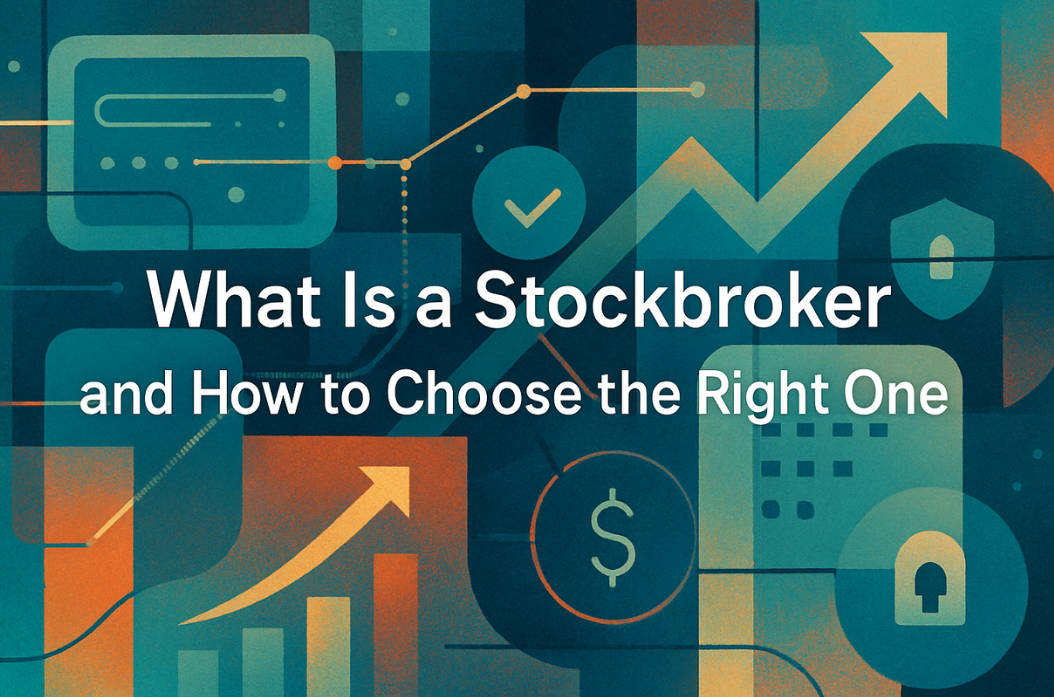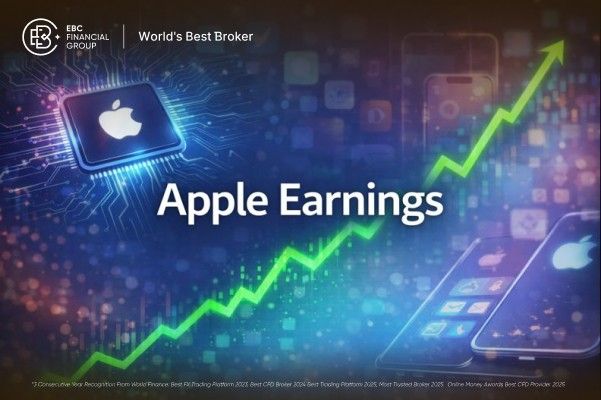A stockbroker is a licensed professional who buys and sells securities on your behalf. Choose one by considering their services, fees, experience, and reputation.
Investing in the stock market can seem complex and intimidating, especially for newcomers. One of the key figures who can guide investors through this landscape is the stockbroker.
This guide will explore who stockbrokers are, the roles they play, how they operate, and what to consider when choosing one.
Highlights
A stockbroker is a licensed professional who buys and sells securities on behalf of clients.
Brokers can be full-service, discount, or robo-advisors, depending on the level of advice and services offered.
Key responsibilities include trade execution, market analysis, client advisory, and compliance with regulations.
Licensing and regulation are essential; strong oversight ensures ethical behaviour, transparency, and investor protection.
Selecting a reliable broker involves considering services, fees, experience, reputation, and regulatory standing.
What Is a Stockbroker?

A stockbroker is a licensed professional or firm that buys and sells securities such as stocks, bonds, and other financial instruments on behalf of clients.
They act as a bridge between individual or institutional investors and the stock market, providing access to investment opportunities that may otherwise be difficult to reach.
Stockbrokers are essential because they help investors navigate complex financial markets. They provide advice, execute trades efficiently, and ensure that investments are aligned with a client's financial goals and risk tolerance.
Without stockbrokers, many investors would find it challenging to participate in the stock market effectively.
The Many Faces of Stockbrokers
Stockbrokers come in various types, each catering to different investment needs. Understanding these types can help investors choose the right professional for their situation.
1) Full-Service Brokers
These brokers offer comprehensive services, including personalised investment advice, portfolio management, retirement planning, and research reports. They are ideal for investors who prefer a hands-off approach and value expert guidance.
2) Discount Brokers
Discount brokers primarily provide online trading platforms that allow clients to buy and sell securities at a lower cost. They usually offer minimal advisory services and are suitable for self-directed investors who prefer control over their trades.
3) Robo-Advisors and Hybrid Brokers
Robo-advisors are technology-driven platforms that offer automated portfolio management based on algorithms. Some hybrid brokers combine automated services with limited human advice, providing a balance between personal guidance and cost efficiency.
A Day in the Life of a Stockbroker
The daily responsibilities of a stockbroker are varied and demanding. They include:
Executing trades: Brokers ensure that buy and sell orders are carried out accurately and promptly.
Market analysis: Keeping abreast of market trends, economic news, and company reports to make informed recommendations.
Client advisory: Advising clients on investment strategies, risk management, and portfolio diversification.
Compliance: Ensuring that all trading activity adheres to regulatory standards and ethical practices.
A competent stockbroker balances technical knowledge, analytical skills, and client communication to provide reliable service.
Licensing, Rules, and Regulations: Playing by the Book

Stockbrokers operate in a highly regulated environment. Regulatory bodies, such as the Financial Industry Regulatory Authority (FINRA) in the United States, the Financial Conduct Authority (FCA) in the UK, and the Securities and Exchange Board of India (SEBI), oversee brokers to protect investors and maintain market integrity.
Licensing is mandatory in most jurisdictions. For example, in the U.S., brokers must pass exams such as Series 7 and Series 63 to gain licensure. Similarly, brokers in other countries must meet local educational and professional requirements. Continuing education is also crucial, as regulations and market conditions constantly evolve.
The Dollars and Cents of Stockbroking
Stockbrokers are compensated in several ways, depending on the services they provide:
Commissions per trade: This is the most common form of payment, where brokers earn a percentage or fixed fee per transaction.
Advisory fees: Full-service brokers may charge a percentage of assets under management for investment advice and portfolio management.
Bonuses or profit-sharing: Some firms offer additional incentives based on performance.
It is important for investors to compare fees, understand any hidden costs, and consider the value of the services provided when choosing a broker.
Technology and Innovation in Stockbroking
The rise of technology has significantly transformed the stockbroking industry:
Online trading platforms: These allow fast execution of trades, access to market data, and portfolio monitoring.
Robo-advisors: These AI-powered tools can automatically manage investment portfolios based on individual risk profiles.
Mobile apps: Investors can trade, track investments, and receive alerts on the go.
Technology has made stockbroking more accessible and cost-effective, while also improving transparency and convenience for investors.
Signs of a Great Stockbroker

Selecting the right stockbroker is crucial. A reliable broker should have:
A transparent and reasonable fee structure.
Strong communication skills and accessibility.
A proven track record and reputable standing.
Ability to provide tailored advice aligned with client goals.
Knowledge of a wide range of markets and investment products.
Investors should also consider personal comfort and trust, as a strong client-broker relationship can enhance investment success.
Conclusion
Stockbrokers at a Glance: Everything You Need to Know
| Category |
Key Points |
What It Means for Investors |
| Definition |
Licensed professionals or firms that buy/sell securities on behalf of clients |
They act as a bridge to the financial markets |
| Types of Brokers |
Full-Service, Discount, Robo-Advisors, Hybrid |
Choose based on cost, service level, and personal preference |
| Daily Responsibilities |
Trade execution, market analysis, client advisory, compliance |
Ensures accurate trades, informed decisions, and regulatory safety |
| Licensing & Regulation |
Overseen by bodies like FINRA (US), FCA (UK), SEBI (India) |
Protects investors and ensures ethical conduct |
| Fee Structures |
Commissions, advisory fees (AUM %), flat annual fees, performance bonuses |
Impacts total investment cost; must compare before choosing |
| Technology Impact |
Online platforms, robo-advisors, mobile apps, AI tools |
Makes investing faster, cheaper, and more accessible |
| What to Look for in a Broker |
Transparent fees, strong reputation, regulatory compliance, tailored advice |
Helps select a reliable and trustworthy partner |
Stockbrokers play a vital role in connecting investors to the financial markets. Whether through personalised advice, efficient trade execution, or portfolio management, they can simplify the complexities of investing.
Understanding the types of brokers, their responsibilities, and what to look for in a reliable professional will help investors make informed decisions and achieve their financial goals.
Frequently Asked Questions
Q1: Do I really need a stockbroker to invest?
Not necessarily. While online platforms allow self-directed trading, brokers provide expertise, guidance, and access to certain investment opportunities that may otherwise be unavailable.
Q2: How is a stockbroker different from a financial advisor?
Stockbrokers primarily execute trades and may offer investment advice. Financial advisors provide comprehensive financial planning, often with a fiduciary duty to act in the client's best interest.
Q3: Can a stockbroker handle my entire investment portfolio?
Yes. Many full-service brokers offer complete portfolio management, including investment planning, risk assessment, and periodic performance reviews.
Q4: How should I pick the right stockbroker?
Compare services, fees, experience, client reviews, and whether you prefer self-directed trading or full advisory support. Check for credentials and regulatory compliance.
Q5: Are online brokers safe?
Reputable online brokers are regulated and provide investor protection. Always verify the platform's credentials, security measures, and customer support before investing.
Disclaimer: This material is for general information purposes only and is not intended as (and should not be considered to be) financial, investment or other advice on which reliance should be placed. No opinion given in the material constitutes a recommendation by EBC or the author that any particular investment, security, transaction or investment strategy is suitable for any specific person.





























